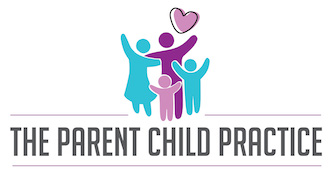Summer's almost gone
Summer's almost gone
Almost gone
Yeah, it's almost gone
Where will we be
When the summer's gone?
-- Lyrics by The Doors
As the lyrics from The Doors suggest, summer vacation is coming to an end for people around the country in a few weeks. Transitioning back to school can be a difficult task for both children and adults. Although many children are excited about the new year which awaits them, there are also many children that experience feelings of anxiety surrounding returning to school. How you handle that transition back to school as a parent is critical to the success of your child(ren)'s first few days and/or weeks. The following few tips will help families make a smooth transition back to school:
1) Attend the school's open-house. Prior to the first day of school your child's school will host an open house. During open house you and your child can meet his/her teacher, tour the school building (if they are a new student) and meet some of their classmates for the upcoming school year. Additionally, open house provides you with an opportunity to develop a relationship with your child's teachers and to forge a partnership with the school staff so that your child is successful for the year. Therefore, it is very important that you attend open house and all parent-teacher conferences. If you are unable to attend due to work constraints then schedule another time to meet with your child's teacher. Most teachers are thrilled to accommodate a parent's work schedule when they know that parent wants to see their child succeed.
2) Return to the school sleep schedule. It is important that your child returns to their school sleep schedule about one to two weeks before school. If children are resistant to returning to this schedule then you want to talk to your child about the importance of being alert for school and extracurricular activities and how this can impact their overall school performance. In addition to returning to their sleep schedule, parents need to also re-introduce all routines associated with bedtime (i.e., household chores, bedtime stories, etc).
3) Have a calendar check-up. I recommend parents to go to their child's school district website and review the school calendar for the academic year. After reviewing the school district calendar place all important dates for the year on the school calendar. On the calendar you want to include early releases dates, parent-teacher conferences, school holidays and district testing schedules. If you have multiple children that attend different schools you also want to arrange for child care for the days in which you will have to attend school events for one particular child or on early release dates. Once the school year begins things will become hectic...so PREPARE NOW!
4) Review school rules and expectations. Children benefit from repetition and review. Therefore, it is important that you review your child's school rules and expectations. Ask them to tell you the classroom and/or school rules and expectations. It is also important that you model what those rules look like and what they don't look like (remember parents need to model what the rules DON'T look like--do not have the children do this!). After reviewing the school rules and expectations, parents may want to discuss the importance of obeying rules and possible home and school consequences for disobeying school rules.
5) Help your children set academic and behavioral goals for the school year. Even children beginning kindergarten can develop short-term and long-term goals related to their school success. You can ask younger children "What do you want to learn at school?" or "What do you want to do while at school?" It is okay if younger children say things like, "play" or "go to lunch." Turn those goals into pro-social activities by elaborating on their responses and saying, "Great goal! So you want to go to lunch, stay seated at the lunch table, and quietly talk to your new friends." Write the goals on paper and post them in a central location so that you can occasionally check your child's progress towards their school goals. In my work with parents, I also encourage them to develop one or two goals for their children and include them on that list. By including parent goals for the child you are relaying the message that school is a parent-child partnership and that the family has expectations for their success.
As mentioned earlier, returning to school is sometimes an anxiety provoking experience for children. However with preparation, families can make the back to school transition a rewarding and successful experience for all involved.
Related articles
Back to School Health Tips (fox4kc.com)
Huntington Learning Center: How to Prepare Your Student to Go Back to School (sys-con.com)



